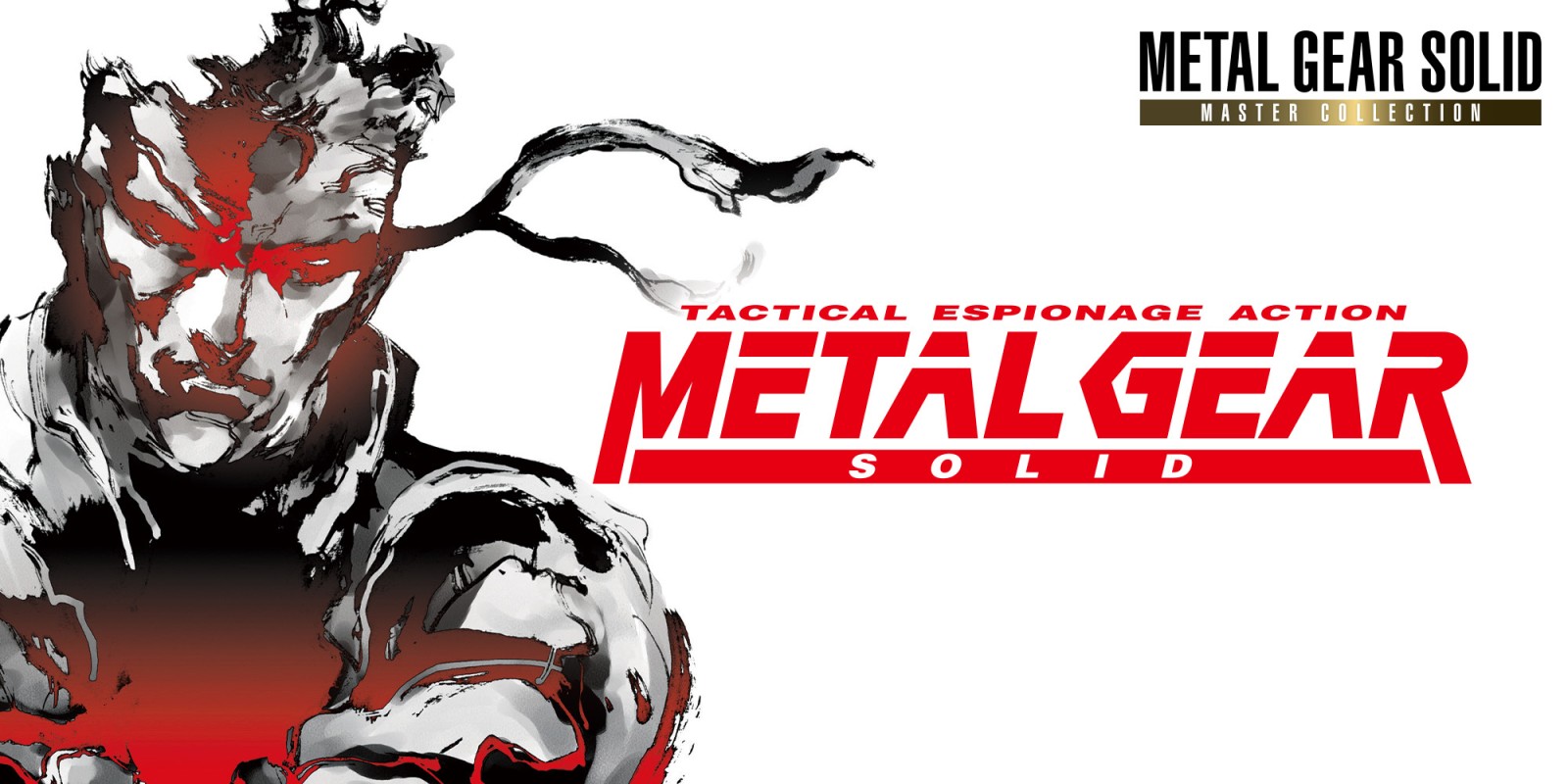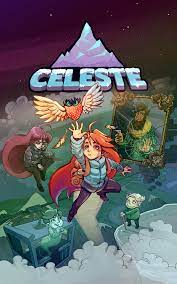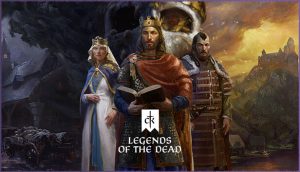
The Japanese have a strange relationship with the English language. They encountered it relatively late – in the middle of the 19th century. In the XX century, the country began active modernization, thanks to which there was an unexpected effect: English words became fashionable among the Japanese, but only superficially. The inhabitants of the country did not understand the grammar of the language and even distorted the meanings of words – up to the point that a kind of Japanese English appeared, which sounds ordinary and familiar to a Japanese, but completely wild for a native speaker of the original language. For example, the word smart in Japan has somehow been assigned the notion of “slender” instead of “smart”.
Against this background, video games were born in the second half of the 20th century. Japan almost immediately became a leader in this field and produced a mass of all kinds of interactive entertainment. English was often found in these games, even if they were not going to be published outside the country; sometimes – for technical reasons, sometimes – because “stylish, youthful”. And that English was terrible.
Anyway, in the ’90s in Japan, English was really hard to come by. Many companies in the country tried to translate games by their own efforts, but they turned out to be mediocre at best, and at worst they produced monstrosities like All your bases belong to us. Therefore, when Konami decided to release Metal Gear Solid with its monstrous script in the West, it became clear that the game needed professional localization.
And localization is a very delicate thing. As you’ve probably learned from the series “The Difficulties of Translation,” there are a lot of subtleties to consider when translating from one language to another – context, which can elude the translator for various reasons, cultural differences, technical limitations like lip-syncing, line lengths, and God knows what else.
Complicating things is the fact that in the 90s, localizations had barely begun to emerge as an important part of the industry. Translating Metal Gear Solid had to be a truly monumental task for its time.
So when you play early Metal Gear Solid in English (or in Russian, which is probably based in English), you’re absorbing the writing of not only Hideo Kojima, but also his translators. And for the Metal Gear Solid script the localizer turned out to be like a co-author, because Kojima didn’t speak English.
And it was this co-writer who largely determined the way we see Metal Gear Solid series today.
A useful gaijin
American Jeremy Blaustein was a teacher at a special English-speaking school in Japan. He came to Konami on the recommendation of his brother, who was working in Konami Chicago at the time. At the interview, Blaustein shone with his knowledge of Japanese and English, and shared fond memories of the Contra series. This story moved Mr. Arakawa, head of the international business department, to tears.
Blaustein was at Konami’s Tokyo office from about September 1993 to March 1995. The job was boring: his department was mainly concerned with receiving faxes with circulation statistics for the U.S. and Europe, and asking Western offices what changes should be made to games for the best sales in overseas markets.
Blostein was the only foreigner in his department, so it gradually got to the point where he was asked to translate some games or even compose something. Blaustein wrote all the text for Animaniacs, The Adventures of Batman & Robin and Sparkster for the SEGA Mega Drive, translated Biker Mice from Mars and Tiny Toon Adventures, and supervised the recording of the primitive voice acting for Contra: Hard Corps.
However, things only took a serious turn when his bosses asked Bloestein what he thought of Hideo Kojima’s Snatcher. As a result, the American spent two months working on the re-release of Snatcher for SEGA CD: he supervised the translation process from Scott Hards, added some of his own and acted as a sound engineer for the English voice acting – for this he had to fly to Chicago.
Snatcher is one of Blaustein’s favorite works. Hideo was not involved in the production of the SEGA CD port, but this game was the first important point of contact between Blaustein and Kojima.
Briefing
Blaustein left Konami to devote himself fully to fatherhood. He moved back to the United States and lived in a rented house in Massachusetts with his wife and two children. Money was tight.
By then, Blaustein had translated two more games, Vandal Hearts and Castlevania: Symphony of the Night. In March 1997 Konami contacted him again and told him: “Hideo Kojima is working on a game with the oddly named Metal Gear Solid. And it too needed to be translated.
Blostein flew to Tokyo to meet Kojima in person. There, the Japanese showed his guest a curious construction: game levels made of LEGO and a small camera. This is how Hideo explained the essence of Metal Gear Solid – he moved the camera around the improvised location to convey the feeling he wanted to achieve in his spy action movie.
Three-dimensional games were still an undiscovered gimmick at the time, and Blostein immediately realized that Metal Gear Solid would be something very special, a breakthrough compared to Policenauts and Snatcher. The American agreed to translate it.
Blostein left the Konami building with three huge heavy folders: they contained the script, drawings and accompanying notes for Metal Gear Solid.
Mission Impossible
Metal Gear Solid had to be translated in six months. The work was monumental, because Kojima didn’t just write a very large script – he did thorough research to meticulously build the game’s world. Military technology, specific weapon names, details about nuclear warheads, elements from Cold War history, Special Forces, Alaskan nationalities, and a whole lot of other stuff were glimpsed in the story.
And Blostein didn’t know anything about these things. In just six months, you have to master a world that Kojima has been nurturing for years. And don’t forget, this is 1997. Mass Internet has barely been born, there is no YouTube, no Wikipedia, no Reddit, and there are no other similar localizations to take as an example to follow. There’s nowhere to wait for help.
Kojima tried to recreate a sense of hard realism, but with James Bond’s clever devices and ingenuity. Blaustein thought he’d get the right spirit from the books of former Navy SEAL Richard Marcinko – he wrote the autobiography Rogue Warrior (yes, that one) and several novels.
Blaustein bought all of Marcinko’s works and read them over and over, trying to get a feel for how the military world works, how soldiers talk to each other, and how best to convey the tone of the sarcastic macho man. In addition, Blaustein went to libraries and bookstores and watched military and spy movies, all in an effort to successfully replicate the language used in Metal Gear Solid.
The American was also given a VHS tape of Metal Gear Solid cut-scenes in Japanese. Blostein began to translate the game linearly, in the order in which the events take place in the game. Already in the introductory episode, the localizer realized that he had to translate the first video brilliantly to set the mood for the entire game.
There were a lot of pitfalls: for example, we had to take into account the pace of voices and the length of lines. But the most difficult thing was another thing: compared to English, Japanese uses a kind of reverse word order. It turns out that Metal Gear Solid is not just a translation of meaning, but a translation of a completely different syntax, around which the commercials were directed.
Blaustein had to work hard on the dialog to make it fit perfectly into the montage of cut-scenes. Metal Gear Solid was an extremely cinematic video game by the standards of its time, and the American couldn’t just re-shoot the clips to make them easier to translate.
The work was difficult, but it was inspiring for Blaustein: he would watch the footage and let the voices, emotions, motivations and style of each character come through. The sense of being part of something grand was empowering and dragged the translator through hundreds of pages of tedious codec conversations – they were nowhere near as exciting as the cutscenes.
Blostein believes that a whole team of localizers does that kind of work now. In 1997, he was alone.
Harmful habits as getting into character
Metal Gear Solid’s scope was much larger than Vandal Hearts or Castlevania. However, Blaustein did not think of signing another contract with Konami, with payments for each completed stage. Instead, he was to receive the full amount only after he completed the entire translation. As a result, the Blosteins were in poverty for seven or eight months while the head of the family worked full-time on Metal Gear Solid.
The stress was off the charts. Blostein’s home “office” was a tiny room the size of a bathroom. Somewhere very close by, two children were constantly making noise. When winter came to Massachusetts, the days became very short. To cope with the psychological pressure, Blaustein took diazepam.
Ironically, Snake in Metal Gear Solid also took diazepam to beat the trembling in his hands. Back in the day, Blaustein smoked a lot – again just like Snake. That’s why the English version of Metal Gear Solid has phrases like “You don’t know how good a cigarette tastes in the morning”. They weren’t in the Japanese version, but Blaustein thought he had a good sense of Snake’s stress and put them in his mouth.
Difficulties of translation
Blaustein calls translation not a science but an art. In his opinion, it is necessary to deviate from the original text to capture the essence of the words, to convey to his audience the same feeling that the original is trying to convey. The American set himself the task of simulating as faithfully as possible the thoughts that Kojima seeks in his text for Japanese players. And at the same time, the thoughts had to be transformed so that they would have the same effect on people from a completely different culture – the English-speaking one.
The translator felt like he was getting inside Kojima’s head, which is roughly how the FBI investigates serial murder cases. It was obvious to Blaustein that in Japan they don’t talk about the war in the same straightforward, tough, and tortured way that they do in the United States. The American wanted to show: Snake and Colonel Campbell are professional soldiers. This should be reflected in the way they speak to each other and to the rest of the Metal Gear Solid characters.
Which means Blaustein himself had to learn how to talk like a soldier. He had to come up with jargon that would believably portray the image of a hardened soldier. Blaustein gives several examples of such jargon:
- The term HALO is high-altitude, low-opening jump. In the original script, Kojima described this principle, but did not use the term itself. Blostein found it in his sources and threw it into the game.
- Snake’s earpiece is called abstractly in Japanese – 無線機, wireless, “wireless”. For English-speaking players, something more euphonious had to be found. After much searching, Blostein came across the word codec – he’d never heard it before, but it sounded cool and officious. It was clearly a good find – can you imagine Metal Gear Solid today without a codec?
- In the original, Campbell tells Snake that he’ll have to 現地調達 (acquire locally) for the weapon. Military jargon was desperately needed, but there was no real-life equivalent. In the end, Blostein came up with his own militarized phrase, OSP, on-site procurement.
In addition, Blaustein tried to give volume to the characters at every opportunity. He believes that translations too often retain meaning but lose feeling. It is the translator’s responsibility to restore that feeling.
For example, in Japanese, Campbell says: “I’m not a colonel anymore” (I’m not a colonel anymore). Blaustein adds a tail to the line, “I’m not a colonel anymore, just a retired old warhorse.”
Blostein’s justification for the tail is that he thought it would be more correct, the bit would add flavor to the whole phrase. The American grasped the subtlety that Kojima was going for in this dialog and expanded it so that English-speaking players could better understand the character.
Another example:
A) “I’m just a guy who can only find meaning on the battlefield.” (I’m just a guy who can only find meaning on the battlefield.)
B) “I’m just a guy who can only find meaning on the battlefield.” (I’m just a man who’s good at what he does. Killing.)
Blaustein owns phrase B, and phrase A is a translation from the remake of Metal Gear Solid: The Twin Snakes, which was made much closer to the original. And Blaustein doesn’t like that version at all.
Another example (talking to Volcano Crow about the Eskimo-Indian Olympics):
(A) “With that strength, you must have practiced tug-of-war and four-man drag.” (With that strength, you must have been training in the stick pull and four-man carry.)
B) “Yes, I know. You must be good at eating maktak.” (Yeah, I know it. You must be a real threat in the ‘Muktuk Eating’ contest.)
Blaustein felt the players didn’t need to mention the fact that there are two other types of contests in the Alaska Olympics. Instead, the translator gave the character an amusing phrase that emphasizes his character. Everyone will decide for themselves which option is correct, but Blaustein is confident in his choice.
And another example is with Psycho Mantis:
A) “For the first time… I’m using my power to help someone. It’s strange… Such a… nostalgic feeling.” (This is the first time… I’ve ever used my power to help someone. It’s strange… such a… nostalgic feeling.)
B) “This is the first time… I’ve ever used my power to help someone. It’s strange… such a… nostalgic feeling. It’s strange… such a… nostalgic feeling.” (This is the first time… I’ve ever used my power to help someone. It’s strange… it feels… kind of… nice.)
As Blaustein explains, in English people do not talk about any of their feelings as nostalgic. The word is usually used in reference to someone else’s emotions.
When they translate like that, there’s a Kojima somewhere crying.
After completing the text translation, Blaustein flew to Los Angeles to record the English voiceover for Metal Gear Solid. As the actors read out their lines, Blaustein sat in the studio as a scriptwriter, with a sound engineer and sound technician by his side.
Blaustein then went home and the dubbing was sent to Japan. The American is proud of the work, firm in his decisions and notes that the quality translation was praised in many reviews of Metal Gear Solid of those years.
But what happened next, Blaustein doesn’t know for sure. He heard that Kojima was extremely pleased with the English voice acting, which is why the game designer decided to add both language tracks to the Metal Gear Solid: Integral re-release. Users could switch between Japanese voices and English subtitles or vice versa – an unheard of feature at the time.
According to Blaustein, during the production of Integral, the people in charge noticed a difference in the game’s Japanese and English text. This is how Kojima found out that the American took liberties during translation and deviated from the original script.
In Blaustein’s opinion, Kojima didn’t understand well enough how much the game required – after all, he didn’t speak English. Be that as it may, Kojima was upset. Blaustein was no longer invited to work on Metal Gear Solid, and the translation of the next installments was entrusted to other specialists – and this time they were closely monitored.
Blaustein believes that this only made the translation worse. As an example, he cites a phrase from Metal Gear Solid V: “I will not give your grief to the impassive sea. I will always be with you. You can take root in me. I will not let you remain ashes. You will become diamonds.” (I won’t scatter your sorrow to the heartless sea. I will always be with you. Plant your roots in me. I won’t see you end as ashes. You’re all diamonds.)
As the American says, this passage should have been “massaged” a little more to make it sound native to English-speaking players. Though, of course, many find such unusual phrases appealing, Blaustein admits.
Now the legions of couch experts on Twitter have the unusual luxury of spending far more time on meticulous translation inspection than the localizers themselves had, Blaustein is convinced.
“I still believe today that the best translators are writers who take on a seemingly impossible task and strive hard to satisfy several masters: the audience, the original author, and the market. In hindsight, I’ll admit – there have been mistakes, there have been bad decisions and good ones. But this is an art. Translation is not a science, and 20 years after the success of Metal Gear Solid, I think I did a pretty good job,” Blaustein writes.
Although Blaustein never crossed paths with Kojima again, he continued to work for Konami through Wordbox. Blaustein supervised the English-language texts of Silent Hill 2, 3 and 4, as well as participated in voice recording and consulted with Team Silent.
So the next time you read Mary’s letter, listen to the monologue I’m here for you, James. See? I’m real or enjoy the voice of David Hayter in the first Metal Gear Solid, remember – it’s not only Team Silent and Kojima who are credited, but also an American named Jeremy Blaustein, who with his invisible hand influenced the perception of the two iconic Japanese series outside their home country.





